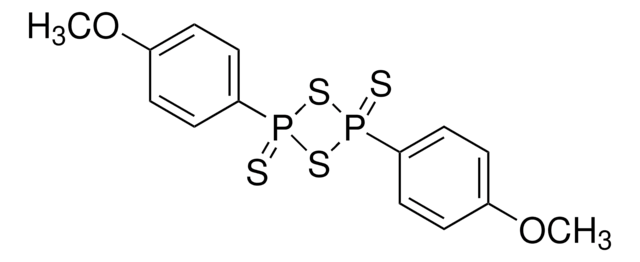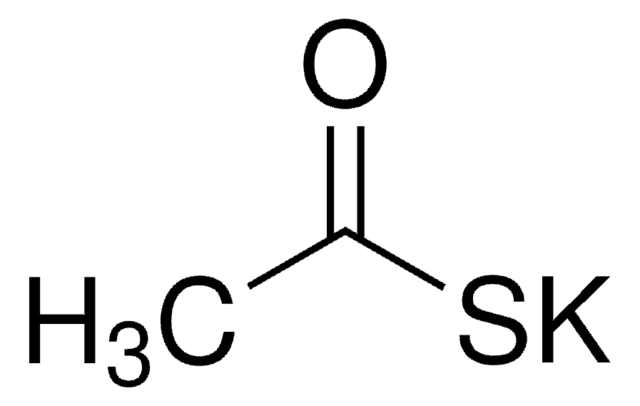288047
Triethyltin bromide
97%
Synonym(s):
Bromotriethylstannane
Sign Into View Organizational & Contract Pricing
All Photos(1)
About This Item
Linear Formula:
(C2H5)3SnBr
CAS Number:
Molecular Weight:
285.80
EC Number:
MDL number:
UNSPSC Code:
12352103
PubChem Substance ID:
NACRES:
NA.22
Recommended Products
Quality Level
Assay
97%
form
liquid
refractive index
n20/D 1.526 (lit.)
bp
222-224 °C (lit.)
density
1.63 g/mL at 25 °C (lit.)
SMILES string
CC[Sn](Br)(CC)CC
InChI
1S/3C2H5.BrH.Sn/c3*1-2;;/h3*1H2,2H3;1H;/q;;;;+1/p-1
InChI key
KQPIFPBKXYBDGV-UHFFFAOYSA-M
Signal Word
Danger
Hazard Statements
Precautionary Statements
Hazard Classifications
Acute Tox. 1 Dermal - Acute Tox. 2 Inhalation - Acute Tox. 2 Oral - Aquatic Acute 1 - Aquatic Chronic 1
Storage Class Code
6.1A - Combustible acute toxic Cat. 1 and 2 / very toxic hazardous materials
WGK
WGK 2
Flash Point(F)
210.2 °F - closed cup
Flash Point(C)
99 °C - closed cup
Personal Protective Equipment
dust mask type N95 (US), Eyeshields, Gloves
Choose from one of the most recent versions:
Already Own This Product?
Find documentation for the products that you have recently purchased in the Document Library.
On the role of carbonic anhydrase in the anticonvulsant effects of triethyltin (TET).
S V Doctor et al.
Experientia, 38(7), 824-826 (1982-07-15)
Interactions of triethyltin bromide with components of the red cell.
K R Siebenlist et al.
Toxicology and applied pharmacology, 58(1), 67-75 (1981-03-30)
W J Clerici et al.
Toxicology and applied pharmacology, 109(3), 547-556 (1991-07-11)
Two trialkyltin compounds, trimethyltin chloride (TMT) and triethyltin bromide (TET) were evaluated for their acute effects on cochlear function in pigmented guinea pigs. Compound action potential (CAP) thresholds and 1 microV RMS cochlear microphonic (CM) isopotential curves were generated for
P H Ruppert et al.
Neurotoxicology, 5(4), 9-22 (1984-01-01)
Triethyltin (TET) has been shown to be neurotoxic when injected on postnatal day (PND) 5. In the present experiment we examined the toxicity of a single exposure to TET at several postnatal ages. Rat pups were injected ip with 0
K R Siebenlist et al.
The Biochemical journal, 233(2), 471-477 (1986-01-15)
Triethyltin binds to native cat and rat haemoglobin but not to their denatured forms or to other animal haemoglobins. Two molecules of the organotin bind to one molecule of R-state cat haemoglobin with affinity constants of about 1 X 10(5)
Our team of scientists has experience in all areas of research including Life Science, Material Science, Chemical Synthesis, Chromatography, Analytical and many others.
Contact Technical Service










